Why Choose an Air Source Heat Pump?
A heat pump is an energy-efficient system that uses the heat from the ambient air for heating and hot water. By using the ambient air and transferring this heat into the house through a hydronic system, such as underfloor heating, a heat pump requires less power input and offers greater power output than conventional boilers.
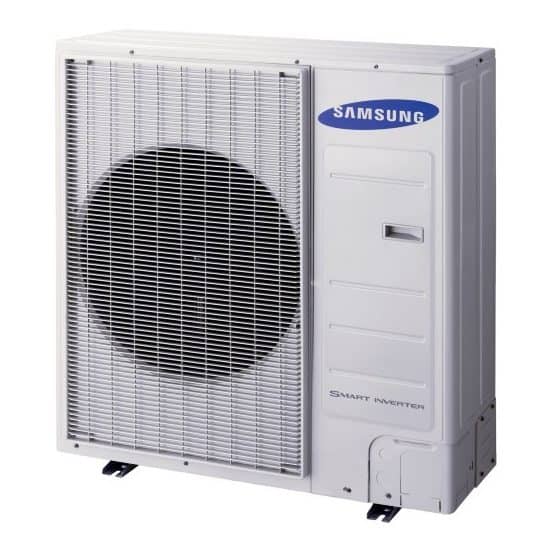
How it Works
A heat pump is essentially a big fridge or freezer. If we look at what your fridge or freezer in detail it uses a refrigerant inside the pipework to suck the heat out of your food, the compressor or refrigerant pump moves the refrigerant around the system so that it can take all the heat and throw it away using a coil on the back of the Fridge. Your freezer is using the heat in your food to heat the kitchen, it’s a food to kitchen heat pump. For every 1 kWh of energy input, a heat pump can deliver up to more than 4 kWh in energy output. This is an energy efficiency ratio of more than 400%, which is far superior to high energy efficiency boiler systems. Since conventional boiler systems can only reach an efficiency ratio of up to 95%, they consume more energy than they can ever deliver.
The Benefits
Integrating a heat pump system for basic heating and hot water in the home is an energy-efficient and environmentally friendly solution. The most noticeable advantage of the heat pump’s energy efficiency is a sizeable reduction in energy bills. The EU has defined heat pump systems as renewable products. Under this classification, end users can apply for government subsidies or tax refunds when installing heat pump systems.
Air source heat pumps…
✓ Get heat from the air even at very low temperatures (up to -15° C)
✓ Are very easy to install, especially compared to ground source heat pump systems
✓ Reduce your fuel bills, particularly when you are replacing conventional electric heating
✓ Provide you with potential income via the RHI (Renewable Heat Incentive)
✓ Have potentially lower home carbon emissions
✓ Do not need any civil ground works
✓ Do not require any fuel deliveries
✓ Heat both your water and home
✓ Require minimal maintenance
 Important Points to Consider before Buying a Heat Pump:
Important Points to Consider before Buying a Heat Pump:
✓ An air source heat pump unit is much similar to an air conditioning unit. This means that you need to have a place outside your home to fit a unit either on the ground or a wall. Ideally, you should have a sunny wall with plenty of space around the unit to allow a good air flow.
✓ Air source heat pump systems work best when installed in a well-insulated home.
✓ If you are replacing a coal or electricity heating system, you can rest assured the air source heat pump system will pay for itself in a heartbeat. If you are using mains gas, then you will probably have to think of another way to replace it, other than an air source heat pump system.
✓ Air source heat pumps work like a charm with warm air heating or underfloor heating systems, rather than systems based on radiators, mainly because they require lower water temperatures.
✓ It is best to pick an air-source heat pump that can minimise heat pump and supplementary energy use. This can be done if you choose one with a demand-defrost control, which will reduce the defrost cycles significantly.
✓ If you already have an electric furnace and you are just adding an air-source heat pump to it, maximise efficiency by placing the heat pump coil on the upstream (cold) side of the furnace.
✓ Given that compressors and fans make noise, it is best to either mount the outdoor unit on a base that absorbs noise or place the unit far from the windows. An air-source heat pump with an outdoor sound rating of lower than 7.5 bels is perfect.
✓ Make sure your outdoor unit is protected from high winds, as these can cause issues that affect the heat pump’s efficiency
 Selecting a Heat Pump for your Home
Selecting a Heat Pump for your Home
According to the Department of Energy, modern air-source heat pumps are almost twice as efficient than three decades ago. That said, every heat pump in the UK comes with an EnergyGuide label that gives information about the heat pump’s cooling and heating efficiency performance rating, as opposed to other models and systems available in the current market.
Heat pump performance (as well as efficiency) is rated by a number of methods. The most important is CoP (Coefficient of Performance), which is the ratio of heat produced (in Btu/h) to the equivalent electric energy in put. Despite the law of thermodynamics that instructs that energy cannot be destroyed or created, an air-source heat pump can produce up to 3 units of heat per unit of electricity consumed, providing it is installed in a well-insulated home. The output and input temperatures play a vital role in determining CoP. For example, if you need an output temperature of 60°C to heat your radiators, then the CoP will most likely drop to level 2.0 In a well-designed underfloor heating though that operates efficiently at an output temperature of 40°C, the CoP can increase to level 3 and more. Also, the higher the input temperature you get from the air, the less work is required from the heat pump, which means CoP will be higher.
That aside, other ways to rate heat pump performance include the HSPF and SEER. For an air-source electric heat pump, heating efficiency is indicated by the HSPF* (Heating Season Performance Factor). As for the cooling efficiency of an air-source heat pump, it is indicated by the SEER (Seasonal Energy Efficiency Ratio)**. The most efficient air-source heat pumps are those that have an HSPF over 8 and a SEER between 14 and 18. To select an air-source heat pump, first check the ENERGY STAR® label. Generally speaking, those living in colder climates should get the highest HSPF while for warmer climates, SEER is more important.
* It is expressed by the overall space heating demanded per heating season (in Btu), divided by the overall electric energy consumed by the system during the same heating season (in Wh or Watt-hours).
** The SEER is expressed by the total of the heat removed from the space that is being conditioned throughout a cooling season (in Btu), divided by the overall electric energy consumed by the air-source heat pump system at the same cooling season (in Wh).
 Heat Pump Maintenance
Heat Pump Maintenance
Usually, air-source heat pumps come with a two- or three-year warranty, and workmanship warranties that could last up to a full decade (i.e. via Quality Assured National Warranties). A well-maintained heat pump can operate for more than 20 years. This includes annual checks by you and a more thorough check by a professional every 3-5 years. Your supplier will provide you with all the necessary information as per how to carry out a proper check every year.
 Costs
Costs
A typical air-source heat pump system costs about £7,000 (and up to £11,000). Depending on several factors, such as your home’s size and insulation, running costs vary. However, you can save a significant amount of money, always depending on your current system and what you want to replace it with.
Samsung Eco Heating System (EHS) combines the best of efficiency, powerful performance and manageability in an all-in-one heating system. Homeowners can easily create a comfortable environment with a full range of operation and the convenience of wireless control.
✓ World-class efficiency – Achieve superior-grade efficiency with eco-friendly heat pump technology, saving significant energy and costs
✓ Powerful heating. Offers advanced heating performance at low ambient temperature, featuring a heating capacity of approximately 90% at -10°C
✓ Low noise level – Rest soundly through the night with a noise level as low as 47 dB
✓ Wide range of operation – Create an environment that suits individual comfort with a wide range of temperature control—even down to -25°C
✓ Smart Wi-Fi – Manage temperatures anywhere, anytime with wireless control
✓ Full range – Select from a full spectrum of high- performance heating systems to meet every need, including all-new 4 kW EHS Split and 5 kW EHS Mono
Samsung EHS Air Source Heat Pumps
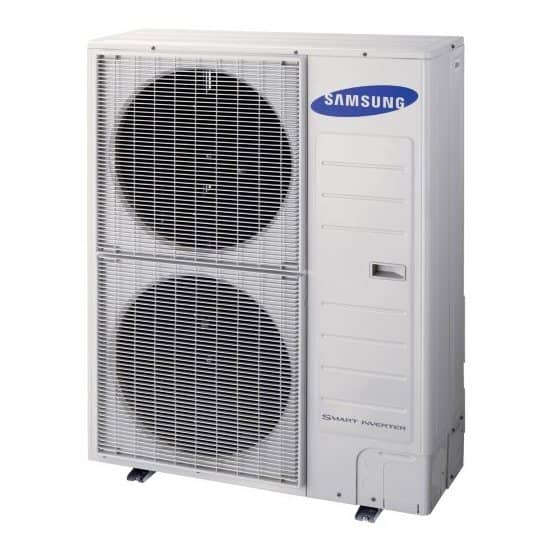
Receive Payments for up to 7 Years…
The Renewable Heat Incentive (RHI)
The Renewable Heat Incentive is a government financial incentive introduced by the Department of Energy and Climate Change to promote the use of renewable heat. Its aim is to cut carbon emissions and help the UK meet its EU renewable energy targets.
People joining the Domestic RHI scheme and keeping to its rules receive quarterly payments for seven years.
What Is It?
The Renewable Heat Incentive is a government financial incentive introduced by the Department of Energy and Climate Change to promote the use of renewable heat. Its aim is to cut carbon emissions and help the UK meet its EU renewable energy targets.
People joining the Domestic RHI scheme and keeping to its rules receive quarterly payments for seven years.
Have a Green Deal Assessment
Before applying for the Domestic RHI you must have a Green Deal Assessment carried out for your property. If recommended you must then install loft and cavity wall insulation. If you already have it, you’re still required to have a Green Deal Assessment.
The property must obtain a domestic Energy Performance Certificate (EPC)
The Domestic RHI scheme is designed to promote the uptake of renewable heating systems in domestic homes. To join, your renewable heating system must only heat a single domestic property which has, or is able to get, a domestic Energy Performance Certificate (EPC).
An EPC gives information about a property’s energy use together with recommendations on how to reduce energy and save money. It’s required every time you buy, sell or rent a property.
RHI will be available to retrofit and self builds only, NOT new builds.
Comfort and convenience with the Samsung EHS Heat Pump
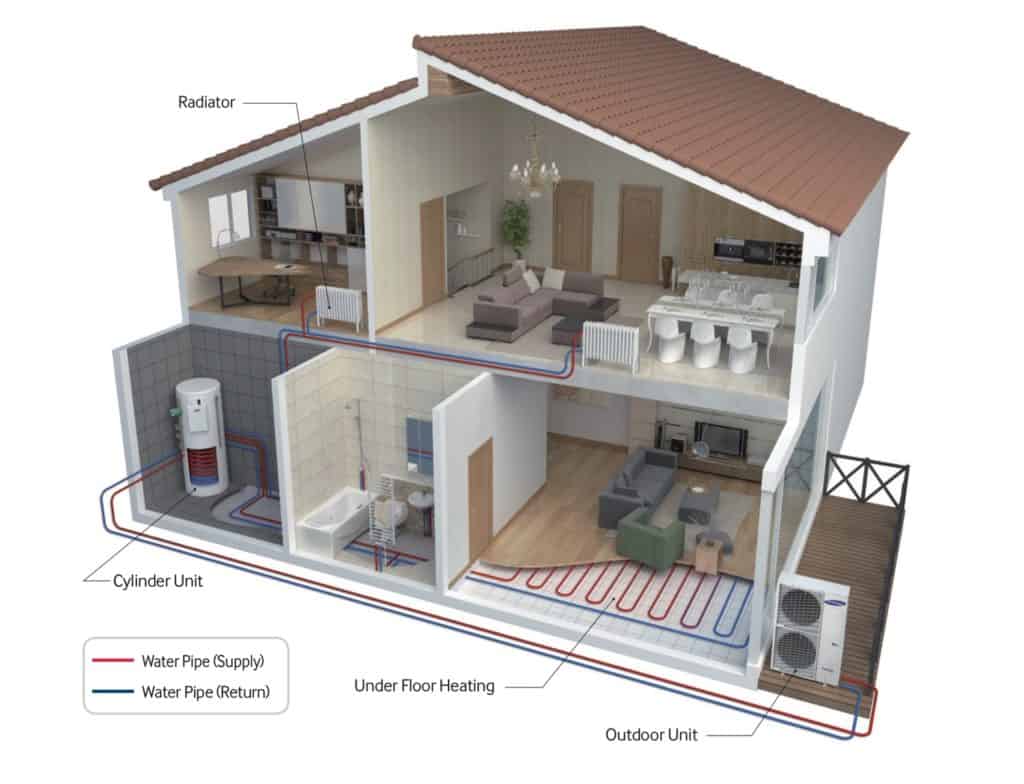
See our range of Samsung Heat Pumps
-
Manuals & Guides
Download our handy installation PDF guides
Download Manuals ››
for help with your underfloor heating installation... -
Confused??
New to underfloor heating? Not sure
Learn more ››
where to begin?
We've got you covered... -
Get a Quote...
Get a full and detailed quotation for your
Get a Quote ››
complete underfloor heating system... -
Need Help?
Just get in touch and one of our friendly members of
Get in touch with us ››
staff will help answer any questions you may have...

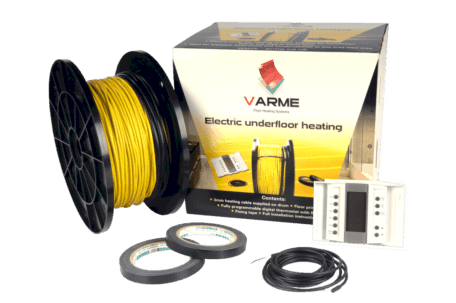
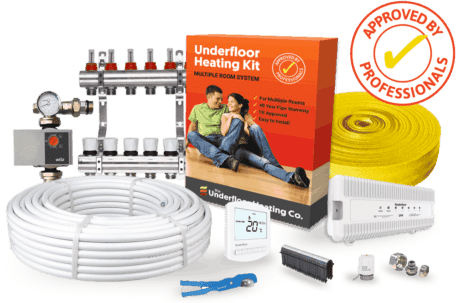
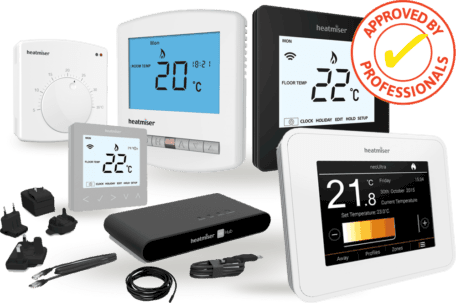
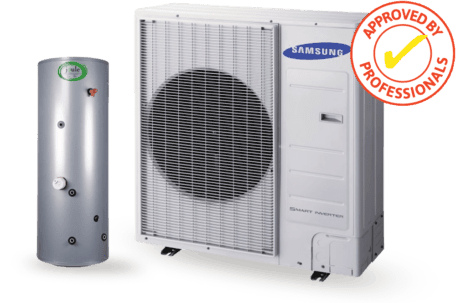
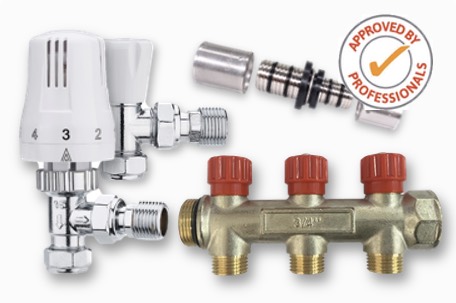
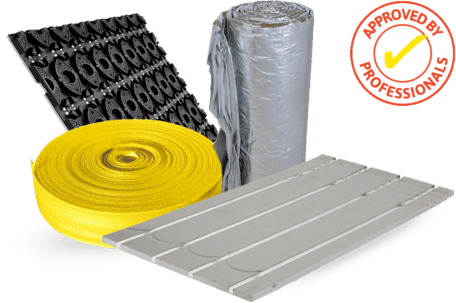
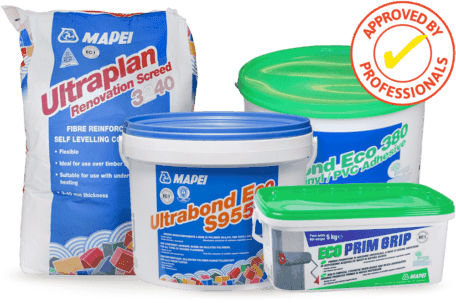








 Trade Prices
Trade Prices  Fast Delivery
Fast Delivery  Rated Excellent
Rated Excellent  30 Day Returns
30 Day Returns  100% Secure Shopping
100% Secure Shopping